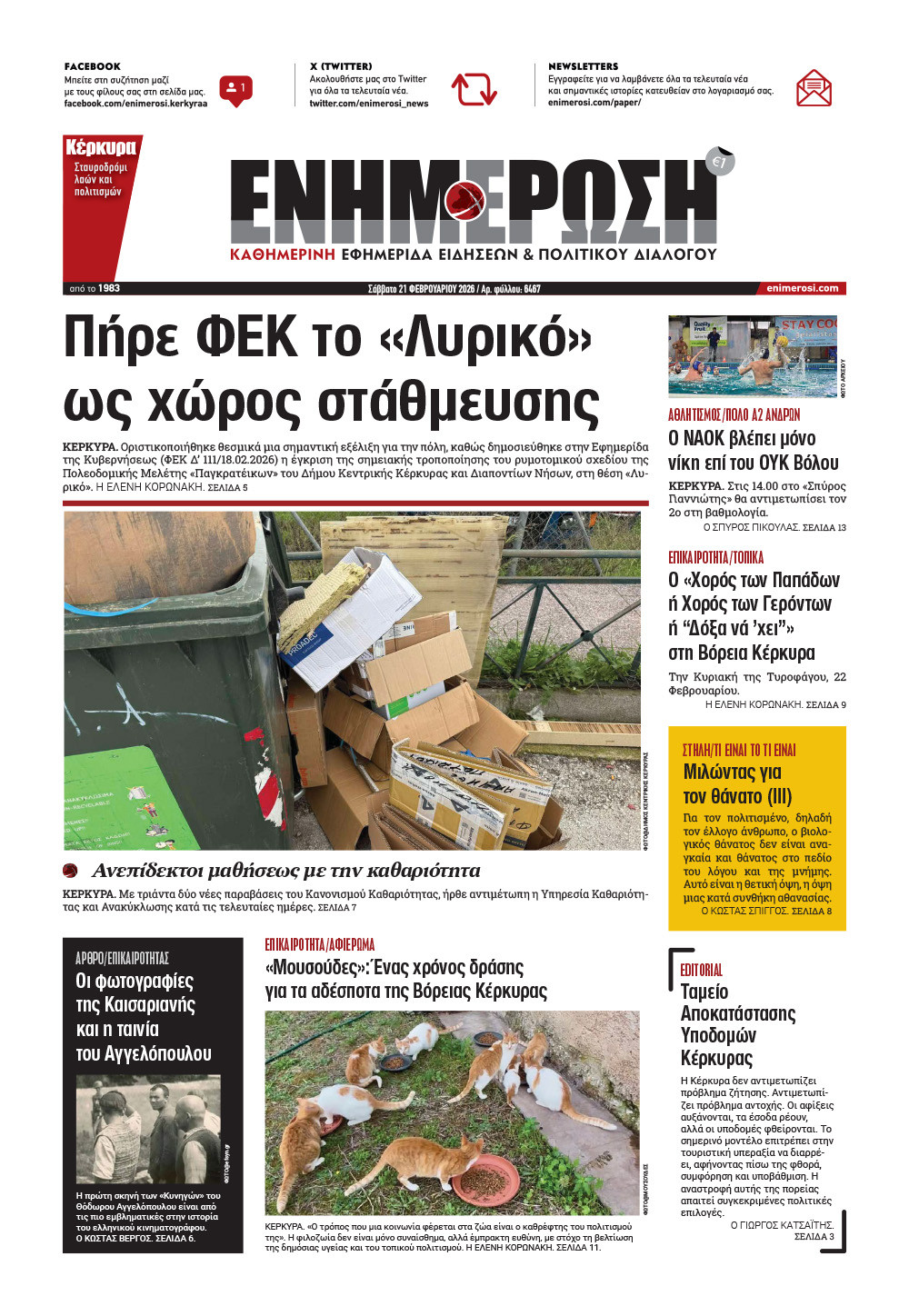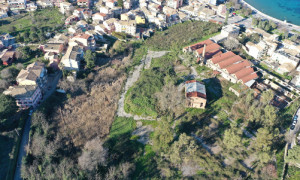Special infrastructure reconstruction plan

The effects of the severe weather serve as a reminder that we need to adopt a special plan for infrastructure restoration.
The recognition that Corfu’s infrastructure is in serious decline resurfaced once again in recent days—this time in the most unequivocal and dramatic manner. Representatives of the local authorities cite the intensity of the weather events. In doing so, however, they clash with public perception, which has long detected—and confirmed—administrative ineptitude, to put it mildly, and is no longer persuaded by such apologetics. Meanwhile, the opposition attacks those in power with the confidence—and presumed innocence—of the unsullied. But is that enough?
Setting aside the endless merry-go-round of blame, which has long ceased to produce any result, the lesson from the recent severe-weather fallout is clear: a dedicated infrastructure restoration plan is urgently needed.
Whatever the current European eligibility criteria for projects and expenditures may be, they must adapt to the vast, as it now appears, special and emergency restoration programme required. This may entail reducing or even cancelling spending on “soft” actions and initiatives—including promotional activities, conferences, and the like—so that the coffers can be filled, as far as possible, for addressing actual needs.
And these needs are no longer few, but many—and costly. Years of delay, combined with rising visitor numbers, have generated immense demands. The scale of intervention is, by nature, regional, but assigning expenditures by municipality will bring planning closer to the real problems and thus render it more accurate.
It is time to put an end to the habitual “business as usual” that routinely consigns problems to the Greek calends. As things stand—when neither regional governors nor mayors remain in office for more than a single term, even an extended one—the problem is merely handed to the next in line. The newcomer typically remains gracious for as long as he can invoke his predecessor’s responsibility; after that, the “happy holidays,” the “happy new month,” and similar pleasantries start to dwindle, and the ritual “doxology” begins.
Such a doxology unfolded yesterday morning in Potamos, with blessings and hosannas directed at the local authorities by residents of the suburb—drenched to the bone…
GIORGOS KATSAITIS







